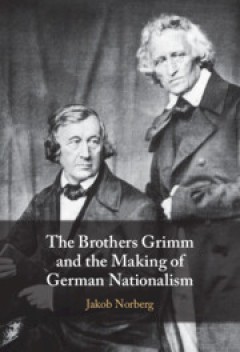Filter by

Radically legal:Berlin constitutes the future
Right in the middle of the German constitution, a group of ordinary citizens discover a forgotten clause that allows them to reclaim their homes from multi-billion corporations. Kusiak argues that to save our cities from the housing crisis we need a revolution powered by the law. This title is also available as Open Access on Cambridge Core
- Edition
- -
- ISBN/ISSN
- 9781009516914
- Collation
- xii, 188 pages; illustration
- Series Title
- -
- Call Number
- 344.43 KUS r

Foreign in two homelands:racism, return migration, and Turkish-German history
Between 1961 and 1973 Turkish migrants were recruited as guest-workers in Germany, becoming West Germany's largest ethnic minority. This transnational history explores their experiences, emphasizing German racism and the estrangement faced by those who remigrated in the following decades, and reveals how many came to feel foreign in two homelands
- Edition
- -
- ISBN/ISSN
- 9781009486682
- Collation
- xvi, 358 pages; illustration
- Series Title
- -
- Call Number
- 305.894 KAH f

Sociology in Germany :a history
This open access book traces the development of sociology in Germany from the late 19th century to the present day, providing a concise overview of the main actors, institutional processes, theories, methods, topics and controversies. Throughout the book, the author relates the discipline’s history to its historical, economic, political and cultural contexts. The book begins with sociology in…
- Edition
- -
- ISBN/ISSN
- 9783030718664
- Collation
- -
- Series Title
- -
- Call Number
- 301.0943 MOE s

"Völkisch" Writers And National Socialism
This book provides a view of literary life under the Nazis, highlighting the ambiguities, rivalries and conflicts that determined the cultural climate of that period and beyond. Focusing on a group of writers – in particular, Hans Grimm, Erwin Guido Kolbenheyer, Wilhelm Schäfer, Emil Strauß, Börries Freiherr von Münchhausen and Rudolf Binding – it examines the continuities in völkisch-…
- Edition
- -
- ISBN/ISSN
- 9783039119585
- Collation
- Knowledge Unlatched (KU)
- Series Title
- -
- Call Number
- -

The Brothers Grimm and the Making of German Nationalism
In the first comprehensive English-language portrait of Jacob and Wilhelm Grimm as political thinkers and actors, Jakob Norberg reveals how history's two most famous folklorists envisioned the role of literary and linguistic scholars in defining national identity. Convinced of the political relevance of their folk tale collections and grammatical studies, the Brothers Grimm argued that they cou…
- Edition
- -
- ISBN/ISSN
- 9781009063890
- Collation
- viii, 268 p
- Series Title
- -
- Call Number
- 943.070922 BRO J
 Computer Science, Information & General Works
Computer Science, Information & General Works  Philosophy & Psychology
Philosophy & Psychology  Religion
Religion  Social Sciences
Social Sciences  Language
Language  Pure Science
Pure Science  Applied Sciences
Applied Sciences  Art & Recreation
Art & Recreation  Literature
Literature  History & Geography
History & Geography